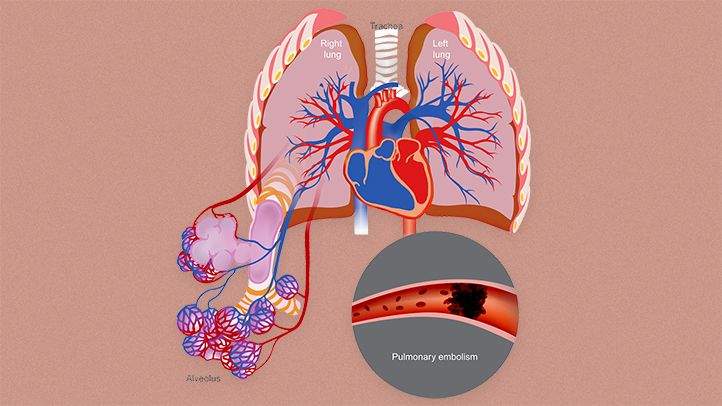Pulmonary hypertension (PH) is a chronic and progressive condition characterized by high blood pressure in the arteries of the lungs. This condition can lead to severe complications, including heart failure, if not managed properly. While conventional medical treatments are essential, many individuals seek complementary and natural approaches to alleviate symptoms and improve their quality of life. Here are five natural ways to treat pulmonary hypertension:
5 Natural Ways to Treat Pulmonary Hypertension?
1. Adopting a Heart-Healthy Diet
A nutritious and balanced diet plays a crucial role in managing pulmonary hypertension. By incorporating heart-healthy foods, you can support overall cardiovascular health and potentially alleviate some of the symptoms associated with PH.
SEE ALSO: Which Alcohols Can Increase Blood Pressure?
Key Dietary Components
Fruits and Vegetables: Rich in vitamins, minerals, and antioxidants, fruits and vegetables help reduce inflammation and oxidative stress, which are linked to PH progression.
Whole Grains: Foods such as brown rice, quinoa, and oats provide essential fiber and nutrients that support heart health.
Lean Proteins: Sources like fish, poultry, beans, and legumes offer high-quality protein without the saturated fats found in red meat.
Healthy Fats: Incorporating sources of unsaturated fats, such as avocados, nuts, seeds, and olive oil, can help reduce bad cholesterol levels and support cardiovascular health.
Reducing Sodium Intake
Excessive sodium intake can lead to water retention and increased blood pressure, exacerbating PH symptoms. It is advisable to limit processed foods, canned goods, and restaurant meals, which are often high in sodium. Instead, focus on preparing meals at home using fresh ingredients and natural herbs and spices for flavor.
Hydration
Staying well-hydrated is essential for overall health. However, individuals with PH should consult their healthcare provider to determine the appropriate fluid intake, as fluid balance is critical in managing this condition.
2. Regular Physical Activity
Exercise is beneficial for overall health and can be particularly advantageous for individuals with pulmonary hypertension.
Regular physical activity helps improve cardiovascular fitness, enhance muscle strength, and boost overall energy levels.
Types of Exercise
Aerobic Exercise: Activities such as walking, swimming, and cycling help improve cardiovascular endurance and oxygen utilization.
Strength Training: Light resistance exercises can strengthen muscles, improve metabolism, and enhance overall physical function.
Flexibility and Balance Exercises: Yoga and stretching can improve flexibility, reduce muscle tension, and enhance overall well-being.
Guidelines for Exercise
Consultation with Healthcare Provider: Before starting any exercise program, it is crucial to consult with a healthcare provider to ensure the activities are safe and appropriate for your condition.
Moderation: Begin with low-intensity exercises and gradually increase the duration and intensity as tolerated.
Monitoring Symptoms: Pay attention to any signs of discomfort, shortness of breath, or fatigue during exercise, and stop immediately if these occur.
3. Stress Management Techniques
Chronic stress can exacerbate symptoms of pulmonary hypertension and negatively impact overall health. Implementing effective stress management techniques can help alleviate symptoms and improve quality of life.
Mindfulness and Meditation
Practicing mindfulness and meditation can help reduce stress, anxiety, and depression. These techniques encourage a state of relaxation and promote emotional well-being.
Mindfulness: Involves focusing on the present moment and accepting it without judgment. Techniques include mindful breathing, body scan, and mindful walking.
Meditation: A practice that involves focusing the mind on a particular object, thought, or activity to achieve mental clarity and emotional calmness.
Deep Breathing Exercises
Deep breathing exercises can help reduce stress and improve lung function. Techniques such as diaphragmatic breathing and pursed-lip breathing promote relaxation and enhance oxygen exchange in the lungs.
Yoga and Tai Chi
These mind-body practices combine physical postures, breathing exercises, and meditation to promote relaxation and improve physical and mental health.
4. Herbal and Nutritional Supplements
Certain herbs and nutritional supplements may offer supportive benefits for individuals with pulmonary hypertension.
However, it is essential to consult with a healthcare provider before starting any new supplements, as they may interact with medications or have contraindications.
Commonly Used Herbs and Supplements
Omega-3 Fatty Acids: Found in fish oil, flaxseeds, and walnuts, omega-3 fatty acids have anti-inflammatory properties and can help improve cardiovascular health.
Coenzyme Q10 (CoQ10): This antioxidant supports energy production in cells and may improve heart function.
L-Arginine: An amino acid that may help improve blood flow and reduce blood pressure.
Hawthorn Berry: Traditionally used to support heart health, hawthorn may help improve circulation and reduce symptoms of PH.
Magnesium: Essential for muscle function and relaxation, magnesium may help reduce muscle cramps and support overall cardiovascular health.
5. Acupuncture and Acupressure
Traditional Chinese medicine practices such as acupuncture and acupressure can offer complementary benefits for managing pulmonary hypertension. These techniques aim to balance the body’s energy flow and promote overall health.
Acupuncture
Acupuncture involves inserting thin needles into specific points on the body to stimulate energy flow (Qi) and promote healing. It is believed to help reduce stress, improve circulation, and alleviate symptoms of PH.
Acupressure
Similar to acupuncture, acupressure involves applying pressure to specific points on the body to stimulate energy flow and promote healing. This technique can be self-administered or performed by a trained practitioner.
Benefits and Considerations
Stress Reduction: Both acupuncture and acupressure can help reduce stress and promote relaxation.
Symptom Relief: These techniques may help alleviate symptoms such as shortness of breath, fatigue, and chest pain.
Professional Guidance: Seek treatment from licensed practitioners with experience in treating pulmonary hypertension.
Conclusion
While conventional medical treatments remain essential for managing pulmonary hypertension, incorporating natural approaches can provide additional support and improve overall well-being. Adopting a heart-healthy diet, engaging in regular physical activity, managing stress, exploring herbal and nutritional supplements, and utilizing traditional Chinese medicine techniques such as acupuncture and acupressure can offer complementary benefits. It is crucial to work closely with healthcare providers to develop a comprehensive and individualized treatment plan that addresses the unique needs of each person with pulmonary hypertension.

